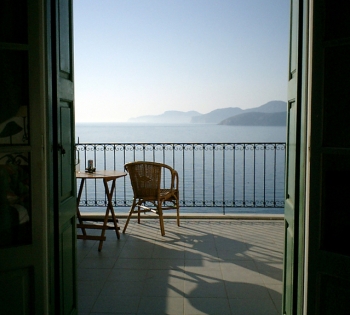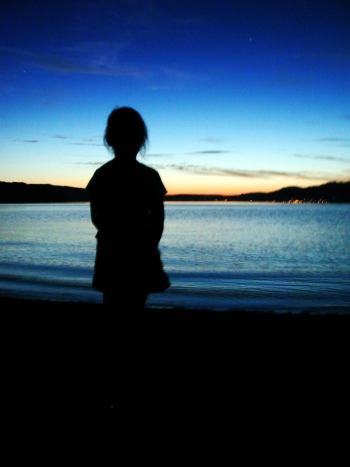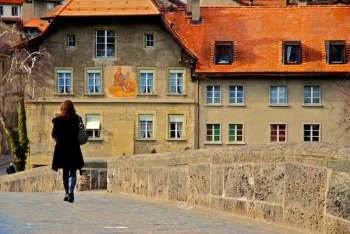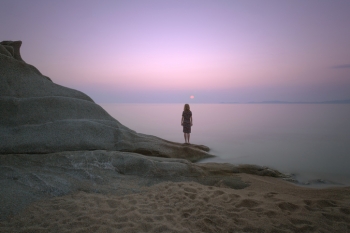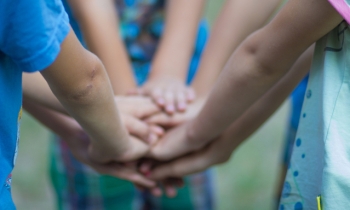
2018 (41)
My hope is to offer encouragement to writers as well as to those who simply love to read. You will find snippets of things I am working on and special announcements here.
My eyes flew open. At once I could see a soft, bluish light beginning to fill the hotel room through the sliding glass window. My husband and I had gotten away for a couple of days to celebrate our anniversary. We'd forgotten to pull the curtain before going to bed, and now our room was bathed in a mesmerizing azure light. I rose, curious to go out on our balcony that faced the ocean. The sky appeared to shimmer, golden shards of light streaming through the clouds. A fresh wind blew my hair back from my face. I could see the waves foaming and frothing at the shoreline, hear their whispers. I'd read about "the blue hour" that occurs just before sunrise and after sunset, when the sun is below the horizon, when the sky is deep cobalt and the landscape is suffused with bluish light. I basked in that tranquil hour and wished I could stop time, the magical light like something otherworldly.
The balcony seemed to beckon me all weekend. Each time I stood by the railing and looked out over the horizon, I felt as if I'd been touched by the poetry of sky and sea, my heart made serene by the ocean's companionable presence. I would have lingered there for days.
May We Be Refreshed As By Streams In The Desert
Written by Priscilla K. Garatti"I just want peace," he said. "My life is full of anxiety that I can't shake." Behind the silver-framed glasses his eyes glistened with tears, youth reflected in the smooth brown cheeks. Dark tendrils of hair hung around his face, loosened from the man bun he sported. He talked to me in a quiet fury of words. He was in my office for an appointment to test for HIV. I often hear words from people that have been compressed for long periods of time--feelings and issues that are seemingly unrelated to having their finger pricked for the blood sample and assessing vulnerabilities for exposure to the HIV virus. He went on. "This world is too chaotic--climate change, the crazy politics, pressure to work long hours. I want to be like you. You seem so calm." All of this in one brief encounter. A man I'd never met. A man I'd likely not meet again.
Little did this individual realize how well I could relate with his emotions. If I appeared calm, my demeanor was a result of God's grace in my life. The day this lovely man came to my office, I'd had an internal meltdown of sorts--bemoaning many of the same feelings of anxiety--pressure at work to perform, the polarized political environment; global agony with tsunamis and tornadoes, floods and fires. "God," I prayed. "How do I manage these feelings of helplessness and panic?"
A few nights ago I dreamed I'd taken a bus to an Italian city. I didn't recognize the location, but I noted an array of orange tiled roofs atop ochre-colored houses, persons greeting each other in Italian. "Buongiorno." Vespas purred down narrow streets. I heard the occasional startling honks of cars as they wound through traffic. I smelled faint traces of car exhaust. I stood on a bridge overlooking the town, the hustle and bustle at once thrilling me, as I had a hunger and curiosity to explore, yet simultaneously felt panic that I did not know where I was. I didn't know which way to go. Before I took another step, an exceptionally tall man emerged by my side and said, "I am here to guide you to all the best parts of this city." He offered me his hand. I briefly hesitated, yet had a hunch that he would be an authentic helper. I placed my hand in his and immediately felt the comfort of his warm grasp.
When I awakened, the concept of "emerging" entered my thoughts. In the dream, a "guide" arrived at precisely the moment I needed clarity to find my way. Before even a prayer for help had formed on my lips, support emerged.
In April of this year, Z Publishing House discovered some of my writing online. They approached me about making a submission. I was in Italy with Giovanni at the time I received the request. I dashed off a quick message thanking them for their interest. When we returned, only a week remained for me to submit before I missed the deadline. When I hit the "send" key, I thought about how rare it is for a publishing company to approach a writer. How extraordinary it is for an author's writing to emerge on the internet sea. (A book is submitted to Amazon every five minutes.) I thought about the myriad rejection emails I'd received over my years of writing. Even though the publisher had contacted me, I had no expectation of hearing from them again.
My study is fragrant with the heady scent of a candle burning brighter than my computer screen. The name attached to the candle is "Fearless." That's the reason I bought the candle in the first place. Its title inspired bravery, dissuading me from allowing fear to reign. I remember one of the first times in my life when I decided against fear. I'd just turned eight. My mother had purchased a skateboard for me. The wooden board had miniature purple feet painted on its shellacked surface. Initially, I didn't believe I'd be able to learn the skill of skateboarding. I'd seen boys in the neighborhood performing tricks on their boards, and these stunts looked too difficult for me. I decided to try. I fell again and again. However, there were brief times when I glided down sidewalks and felt the thrill of moving faster than I could run, when I experienced the exuberance of improving my skill. By summer's end in 1963, I'd accomplished my goal--I skated down the tallest hill on my street without falling, the neighborhood boys watching and gasping in surprise that I'd done it.
When I thought of this memory, I asked myself what helped me transcend the feelings of fear. I believe it was first a confident expectation that I'd eventually learn the skill. This positive mindset then provided the ability to transcend the fear of failure and and increased my confidence to practice each day, tolerating the messiness and uncertainty of learning a new skill.
Fast forward fifty-five years and very little has changed regarding the need for me to embrace fearlessness.
She sat in her pickup, the driver's side window down, hair blown back from her face. The first traces of tropical storm gusts stirred the air as the state anticipated the effects of Hurricane Florence. I noted a pink neon stripe zagged through the woman's dark bangs. The color reminded me of those frozen concoctions sold in gas station convenience stores, that stain one's tongue disturbing colors. I stood on the bank of the tidal creek where she had parked her truck. We made eye contact, waving simultaneously. The young woman smiled and nodded, then went back to her musing as did I, our brief connection a mercy as we awaited the storm's approach.
The woman's bright shot of pink in her hair, and her wide smile comforted me, and I began thinking of the concept of mercy as I walked. I remembered the encounter I had with my six-year-old granddaughter a few days prior. We'd been talking about how we enjoyed writing as a way to capture moments of our lives. She picked up her journal and said, "You know what I write in my journal is just for me to read." I responded, "I understand. My journal writing is the same--only for me." Then she said, "But I'll read you a page in mine." I said, "I'd like that very much." She began:
"One day I went with my mommy to visit a lady. When we got there, and I saw the lady, I realized she had a mustache. I really, really, really wanted to say something." Then my granddaughter looked up from reading and said, "I had to hold back my words. I wanted to say something so bad." She continued: "I decided not to say anything, though, becasue it could have hurt the lady's feelings. I didn't want to do that."
While on some level, the journal entry was funny, the story reflected a tenderness of heart as well. At six, my granddaughter had learned the art of mercy.
